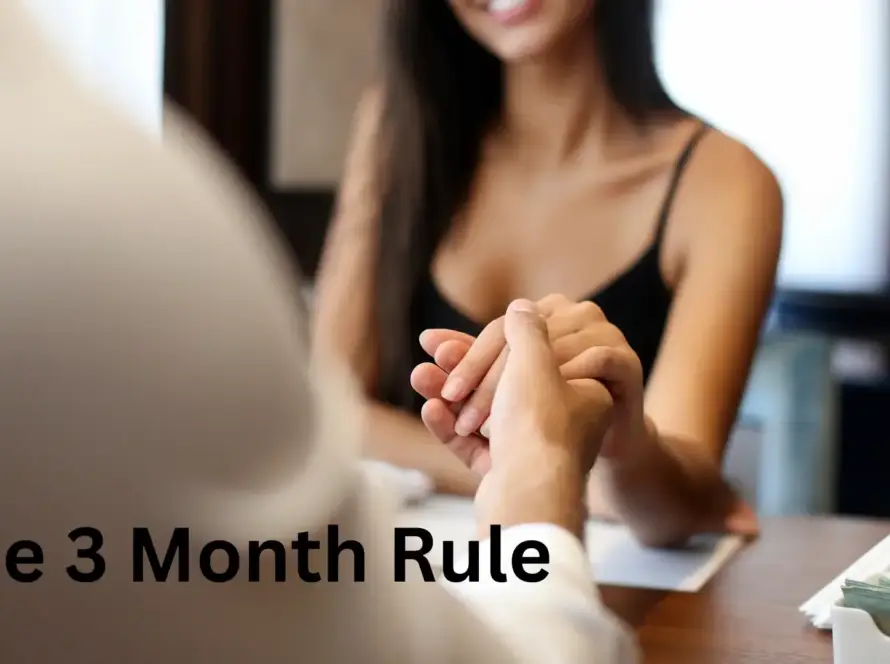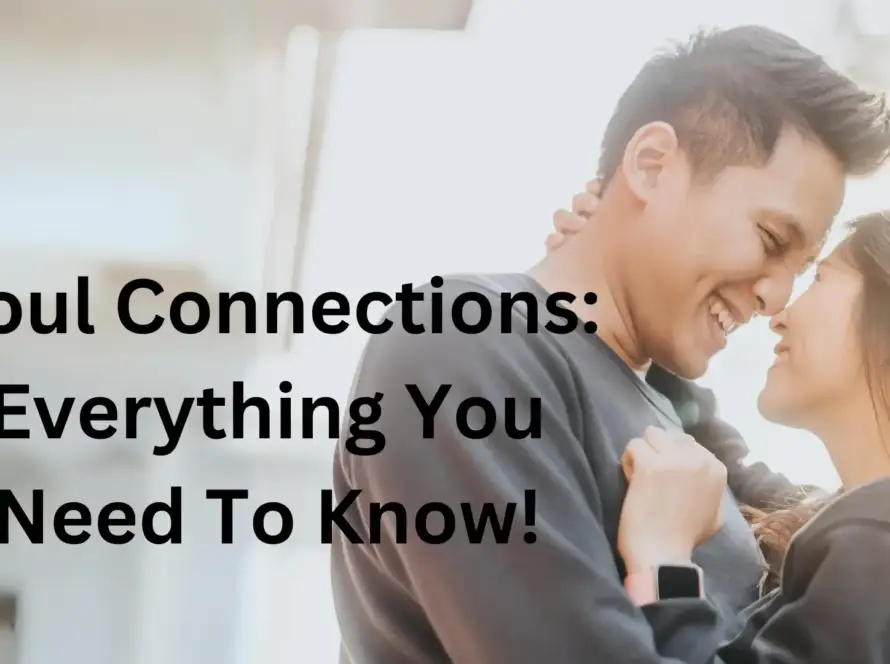
Today we’re talking about the only 3 real turn offs in a relationship, as many think there are thousands of them…but at the end of the day you can boil it down to 3 main ones… everything else can be figured out, discussed, and agreed upon.
When we think about relationships, we often focus on the sparks, the butterflies, and the magic.
But let’s face it, sometimes the sparks flicker out, and instead of butterflies, you’re left with a pit in your stomach.
Why?
Because of turn offs!
Those sneaky little things that can transform a fairy-tale romance into a questionable situation.
But what are these relationship-killers, and more importantly, can they be fixed?
Let’s dive in and talk about turn offs, and discover the only three that really matter.
What Are Turn-Offs?
Turn-offs!
We’ve all heard the term before, but what does it really mean?
Is it when your partner chews with their mouth open? (Definitely a contender.)
Or maybe it’s when they can’t stop talking about their ex? (Yikes.)
A turn-off is basically anything your partner does (or doesn’t do) that makes you feel like the romance is fading faster than a cheap Instagram filter.
It’s that moment when something about them goes from adorable to unbearable.
Whether it’s the way they leave dirty dishes on the couch (who does that?) or how they think text-speak is appropriate in serious conversations.
In a nutshell, a turn off is an action, habit, or trait that dampens your attraction to someone.
It could be something as small as the way they slurp their coffee or as big as how they handle (or don’t handle) conflict.
Sometimes these turn offs are just pet peeves you can live with, but other times, they can seriously affect the way you see your partner, and not in a good way.
Here’s the thing: everyone has their own personal list of turn offs.
What drives one person absolutely nuts might be completely adorable to someone else.
Some people might even find endearing quirks where others see deal-breakers.
You know, like how some couples love finishing each other’s sentences, while for others, that might just feel like straight-up interrupting.
One minute you’re gazing lovingly into your partner’s eyes, and the next, you’re thinking, “Wait, do they really laugh like that?”
Or worse, “Have they always breathed this loudly?”
The magic is suddenly sucked out of the room, and all you’re left with is the sound of their (too loud) breathing.
But let’s be clear: turn offs aren’t necessarily about making your partner feel like they’re doing everything wrong.
It’s more about how certain behaviors make you feel.
Maybe they’re perfectly fine for someone else, but to you?
Yeah, not so much.
It’s about those moments when you go, “Wait, what? Did they seriously just do that?” And suddenly, you’re not daydreaming about your next date but about having some serious alone time.
Sometimes, turn offs creep up on you unexpectedly.
You may have been totally fine with your partner’s quirks in the beginning of the relationship (rose-colored glasses, anyone?), but over time, little things start to add up. You know, like when you first thought their obsession with superhero movies was cute, and now you’re wondering how much longer you can fake enthusiasm for another Marvel marathon.
Other times, turn offs show up right from the start, and you just ignore them because, hey, new love is blinding.
Like that one time when they made that off-hand comment about “hating animals” and you thought, “Oh, that’s weird,” but you laughed it off and moved on.
Now, months later, you’re giving them serious side-eye whenever they make a snide remark about your cat. (How dare they?)
The point is, turn offs are subjective, and they can be sneaky.
Sometimes, they’re obvious red flags, and other times, they’re tiny cracks that slowly start to erode your connection.
Whether it’s emotional immaturity, bad hygiene, or a complete lack of table manners, turn-offs can derail even the strongest of romances if left unchecked.
Ultimately, a turn off isn’t just about the action itself. It’s about how that action makes you feel. If your partner’s behavior makes you feel unappreciated, disrespected, or even just plain irritated, then that’s when it becomes a real issue.
There Are Different Levels of Turn-Offs
Imagine turn offs like a video game.
You’ve got your Level 1 turn-offs, your Level 2s, and then there are those Boss Level turn-offs—the ones that make you question all your life choices.
Not all turn-offs are created equal, and some are more like minor annoyances that you can overlook, while others can become deal-breakers if left unchecked.
Let’s break it down a bit more.
Level 1 Turn-Offs: The “Meh, I Can Deal With It” Stuff
These are the harmless, almost silly turn offs that, while a bit annoying, aren’t going to send you packing.
These things might make you roll your eyes, but deep down, you know they aren’t a big deal.
Think of these as the quirks you could tease your partner about, and they’d laugh along with you.
For example, maybe they chew a little too loudly when they eat popcorn, or they have an inexplicable love for cringe-worthy puns (yes, dad jokes).
Sure, it might get on your nerves when you’re trying to enjoy a quiet movie night and all you can hear is chomp-chomp, but is it something worth fighting over?
Probably not.
Or maybe it’s their weird obsession with collecting something totally random, like vintage bottle caps or obscure action figures.
You might side-eye their growing collection, but at the end of the day, it’s not harming anyone.
These are the quirks you can laugh off or poke fun at during family dinners.
They’re not deal-breakers, they’re just minor irritants.
Real talk: In the grand scheme of things, Level 1 turn-offs are usually pretty harmless.
They’re more like charming imperfections than red flags.
You might even grow to find them endearing—like how they always leave a trail of socks around the house.
Annoying?
Sure.
Relationship-ending? Probably not.

Level 2 Turn-Offs: The “Okay, Now This Is Getting Annoying” Stuff
This is where things start to get a bit more serious.
Level 2 turn offs are the habits or behaviors that might not be harmful on their own, but over time, they start to grate on your nerves like nails on a chalkboard.
You could ignore them for a while, but the more they happen, the harder it becomes to stay chill about it.
Maybe your partner is perpetually late. At first, you laughed it off, thinking, “Oh, they’re just not a morning person.” But then it starts happening all the time. Late for dinner reservations, late for movie dates, late for important events.
Suddenly, you find yourself waiting alone and frustrated, wondering why they can’t just be on time for once.
Now that little quirk you could ignore has turned into a persistent frustration.
Or maybe they have a habit of oversharing details about your relationship with their friends.
At first, it seemed like harmless banter, but then you find out their entire friend group knows way too much about your private life.
And now, instead of laughing it off, you’re cringing every time they casually mention your arguments or that embarrassing story about your first date.
It’s not a deal-breaker… yet.
But it’s definitely a turn off that’s starting to weigh on you.
Real talk: Level 2 turn-offs are still things you can work through, but they need to be addressed before they grow into bigger problems.
They might start off small, but if left unchecked, they can turn into real frustrations that eat away at your patience.
Boss Level Turn-Offs: The “Do I Need to Re-evaluate This Relationship?” Stuff
Now we’re getting into the Boss Level territory, the kind of turn offs that make you question the entire relationship.
These are not your run-of-the-mill annoyances.
They’re the big, glaring issues that strike at the core of what makes a relationship healthy and functional.
These aren’t just frustrating, they’re relationship-crushing.
One common Boss Level turn-off?
A complete lack of empathy.
Maybe you’ve noticed your partner is more self-centered than you originally thought.
When you’re feeling down, instead of supporting you, they turn the conversation back to themselves.
You’re dealing with a rough day at work, and somehow, they manage to make it all about their stressful meeting that you’ve heard about five times already.
Suddenly, you’re left feeling alone, unheard, and seriously questioning how much they actually care about your feelings.
Another Boss Level turn-off could be dishonesty!
If you catch your partner in lies, whether they’re little white lies or something more serious, it can shatter your trust and leave you feeling insecure in the relationship.
Even if they seem like small lies, they add up, and pretty soon you’re wondering what else they’ve been hiding.
Or maybe it’s their complete lack of effort in the relationship.
You’re the one making plans, doing the emotional labor, and basically keeping the romance alive.
Meanwhile, they seem perfectly fine with sitting back and coasting through, putting in minimal effort.
Over time, that kind of imbalance can drain you emotionally and make you feel like you’re the only one invested in making things work.
Real talk: Boss Level turn-offs are serious business.
They’re the kinds of behaviors that can cause resentment, mistrust, and even make you reconsider the entire relationship.
If your partner shows zero respect, empathy, or honesty, it’s not just a turn off, it’s a red flag waving in your face.
At this point, you’ve got to ask yourself some tough questions: Is this something I can live with?
Is it something that can change?
Or is it time to move on?
Whether it’s Level 1 quirks or full-on Boss Level deal-breakers, turn-offs exist on a spectrum.
The key is recognizing where your partner’s behavior falls on that spectrum and deciding whether it’s something you can address, or if it’s time to hit pause and re-evaluate the relationship altogether.
The Only 3 Real Turn-Offs That All the Others Stem From
Now, let’s cut to the chase.
After all the wet towels, burps, and bad Instagram habits, it turns out most turn-offs boil down to just three major categories.
Yep, three.
These are the core issues that all other minor annoyances tend to stem from.
When you really think about it, the irritating little habits are often just surface symptoms of deeper underlying problems.
So, what are these foundational turn-offs that have the power to bring down even the strongest of relationships?
Let’s break them down:
1. Lack of Respect
This one’s a biggie.
And no, it’s not just about saying “please” and “thank you” (although that’s a nice touch).
A lack of respect can show up in so many different ways in a relationship, and it often doesn’t look like what you’d expect.
It’s not just about someone raising their voice in an argument or failing to listen, it’s more subtle than that, and it can creep into everyday interactions.
Maybe your partner rolls their eyes every time you express an opinion, or they brush off your feelings with a casual, “You’re overreacting.”
These small, seemingly harmless actions can pile up and send a clear message: “What you think or feel doesn’t really matter.”
And guess what?
That feels terrible.
Another common way lack of respect shows up is when your partner ignores your boundaries.
You’ve asked them to be more mindful of your personal space, and yet they keep crossing the line.
Or maybe they never seem to take your preferences seriously, whether it’s about how you split household chores or what show to watch on Netflix.
You might think these things are small, but over time, they chip away at the foundation of your relationship.
Real talk: If your partner doesn’t respect you, it can make you feel undervalued and insignificant.
Without mutual respect, it’s impossible to maintain a healthy relationship!
It’s the bedrock of love, trust, and everything in between.
Without it, you’re on shaky ground.
2. Poor Communication
Ever feel like you’re speaking two different languages?
Like you’re saying one thing, and your partner’s hearing something else entirely?
Poor communication is a turn-off that can drain the love out of a relationship faster than you can say, “Did you even hear me?”
Communication isn’t just about talking.
It’s about understanding!
And when there’s a gap in understanding, frustration is inevitable.
Maybe your partner avoids serious conversations, or worse, they get defensive and shut down the moment you bring up an issue.
It’s like pulling teeth trying to get them to talk about feelings, future plans, or even just day-to-day stuff that matters to you.
There’s also the infamous silent treatment, a classic communication breakdown.
When one person decides to stop talking altogether as a way to deal with conflict, it leaves the other partner feeling helpless and confused.
Instead of resolving the issue, it just creates emotional distance.
Poor communication can also manifest in constant misunderstandings.
You say one thing, but your partner hears something completely different.
Suddenly, a simple conversation about whose turn it is to do the dishes turns into a full-blown argument about who’s more invested in the relationship.
Real talk: Without healthy, clear communication, resentment builds up fast.
A lack of communication turns every little issue into a potential argument, and before you know it, you’re fighting about things that don’t even matter.
If you can’t communicate effectively, how can you expect to grow together as a couple?
3. Selfishness
We’re all a little selfish sometimes, it’s human.
But when selfishness becomes a habit?
That’s when things start to go south.
Whether it’s emotional, financial, or physical selfishness, it can be a real turn-off when one person consistently prioritizes their needs over the other.
Emotional selfishness shows up when your partner makes every conversation about them.
You’ve had a rough day and need to vent, but instead of listening, they hijack the conversation and tell you about how their day was worse.
Or maybe they rarely check in on how you’re feeling or seem disinterested when you share something important.
Over time, this can make you feel unsupported and alone in the relationship.
Financial selfishness?
That’s when one partner is all too happy to spend money on themselves but doesn’t show the same consideration for joint expenses or your needs.
Maybe they splurge on a new gadget for themselves but balk at the idea of contributing equally to shared bills.
It can create a sense of imbalance and resentment, especially when one person feels like they’re always giving while the other is only taking.
And then there’s the issue of physical selfishness.
This could range from refusing to compromise on activities you do together to consistently putting their physical needs ahead of yours.
In a healthy relationship, both partners should feel like their needs are being considered and met. When it’s all about one person, it leaves the other feeling neglected and unimportant.
Real talk: A relationship is a partnership, not a one-way street.
When selfishness becomes the norm, it’s like the foundation of the relationship is built on quicksand.
Eventually, the person who’s constantly giving will burn out, and resentment will take over.
A one-sided relationship rarely survives in the long run!

How to Deal With These Turn Offs and How to Tell Your Partner About Them
So, what do you do when these turn offs rear their ugly heads?
Do you call it quits the second your partner eats the last slice of pizza without asking?
Probably not.
The key to dealing with turn offs is figuring out whether they’re minor irritations or signs of something deeper.
Once you’ve identified the issue, the next step is dealing with it in a healthy and productive way.
And yes, that means talking to your partner about it.
Scary?
Maybe.
Necessary?
Absolutely!
Step 1: Acknowledge the Problem
Pretending the issue doesn’t exist won’t make it go away.
Ignoring turn offs can actually make them worse because those small frustrations?
They add up!
Maybe you’ve been letting the wet towels on the bed slide for a few months, but now it’s making you want to scream every time you see them. (Seriously, who leaves wet towels on a bed?)
You don’t have to jump into a full-on confrontation right away.
Start by acknowledging to yourself that something is bothering you.
If you keep pushing down your feelings, they’re going to bubble up eventually, probably at the worst possible time.
So take a deep breath and admit, “Yes, this is bugging me, and I need to deal with it.”
Step 2: Figure Out the Root Cause
Not every turn off is what it seems.
Sometimes what’s really bothering you isn’t the actual behavior but what it represents.
For example, if you’re annoyed that your partner constantly forgets to pick up after themselves, is it really about the mess?
Or is it about feeling disrespected or unappreciated?
Ask yourself what the underlying issue might be.
Are you feeling unheard, dismissed, or taken for granted?
Are they being selfish or just forgetful?
By identifying the root cause, you’ll have a clearer understanding of why this particular turn off is so triggering, and that’s going to make the conversation with your partner a lot easier.
Step 3: Choose the Right Moment
Timing is everything!
If you’re in the middle of a heated argument about whose turn it is to walk the dog, that’s probably not the best time to bring up the fact that you’re also annoyed about their poor communication skills.
Talking about turn offs when emotions are already high can lead to defensiveness and escalation.
Instead, pick a calm, neutral moment to have the conversation.
Maybe during a casual dinner or when you’re both relaxing after work.
The goal is to approach the topic in a non-confrontational way, so your partner doesn’t feel attacked.
No one wants to feel like they’re being ambushed with a laundry list of complaints.
Step 4: Use “I” Statements
This might sound like textbook advice from every relationship counselor ever, but trust me, it works.
When you lead with “I” statements, it takes the edge off and shifts the focus from blaming your partner to expressing how you feel.
For example, instead of saying, “You never listen to me!” you could try, “I feel unheard when I share something important, and I don’t get a response.”
See how that changes the tone?
You’re not accusing them of being a terrible listener. You’re just explaining how their behavior makes you feel.
It’s less likely to make them defensive, which opens up room for an honest conversation.
Step 5: Be Specific
Vague complaints aren’t going to help anyone.
If you tell your partner, “You’re so selfish,” they might not even know what you’re talking about.
Is it about how they hog the TV remote or how they never ask about your day?
Be specific about what’s bothering you.
For instance, say something like, “I feel like I’m the one always making plans, and I’d appreciate it if we could share that responsibility.”
That way, they know exactly what the issue is and can work on fixing it.
Broad, sweeping statements will just leave both of you frustrated and confused.
Step 6: Be Open to Compromise
No one’s perfect, and chances are, there are things you do that annoy your partner too. (Yeah, we’ve all got our quirks.)
Once you’ve laid out your feelings, be open to hearing their side.
Maybe they didn’t even realize their habit was a turn off for you, or maybe they have a reason for it that you hadn’t considered.
For example, if your partner’s constant lateness drives you crazy, they might admit they’re terrible at managing time but are willing to set reminders or alarms to fix it.
The point is, it’s a two-way street.
Be ready to work together to find a solution, and understand that compromise is key.
Step 7: Set Boundaries
If certain turn offs are non-negotiable, it’s time to set clear boundaries.
Let your partner know what you need in order to feel respected and valued in the relationship.
If something is truly a deal-breaker, don’t be afraid to speak up about it!
For example, if poor communication is really damaging your connection, you might set a boundary like, “I need us to have more open conversations when issues arise, or this will continue to affect how I feel about us.”
Setting boundaries doesn’t have to be about ultimatums. It’s about laying the groundwork for a healthier relationship.
Step 8: Give Them Time
Change doesn’t happen overnight!
Your partner might not immediately stop leaving dirty socks on the floor just because you’ve had the talk.
They might still get defensive now and then when you bring up serious topics.
That’s okay.
The important thing is that they’re willing to work on it and make improvements.
Be patient, and recognize the effort they’re putting in.
If they’re trying to meet your needs, even if it’s not perfect right away, give them credit for that.
Just as you’re asking them to adjust, you’ll need to show flexibility and patience while they work on themselves.
Step 9: Check In Regularly
After the initial conversation, don’t let the issue slide into oblivion.
It’s important to check in with each other every so often.
Has the turn off improved?
Are things getting better, or is it still causing friction?
Regular communication about how things are going will help ensure that both of you stay on the same page.
You don’t need to have a formal meeting every week, but keeping an open dialogue about how the relationship is progressing shows that you’re both committed to making things work.
Dealing with turn offs in a relationship is never easy, but it doesn’t have to be a disaster, either.
Conclusion
Turn-offs are an inevitable part of any relationship, but they don’t have to spell doom for your love life.
By acknowledging the issues, communicating clearly, and setting healthy boundaries, you can tackle those pesky habits that drive you up the wall.
The key is to approach the situation with understanding, patience, and a willingness to compromise. But if communication is one of your biggest turn-offs, it might be time to bring in a little help.
Enter the Better Topics Card Game for Couples: the perfect tool to improve communication in your relationship.
This game is designed to help couples spark meaningful conversations in a fun and lighthearted way. It’s not just about addressing problems, t’s about strengthening your connection and learning more about each other, even after years together.
Whether you’re dealing with small annoyances or bigger turn offs, playing this game can open up new ways to talk openly and honestly with your partner.
So why not make your next date night a little more interesting?
Grab the Better Topics Card Game, pour a glass of wine (or two), and dive into some playful, thoughtful questions with your significant other.
You might just find that the key to fixing those communication roadblocks is as simple as sitting down for a game together.









